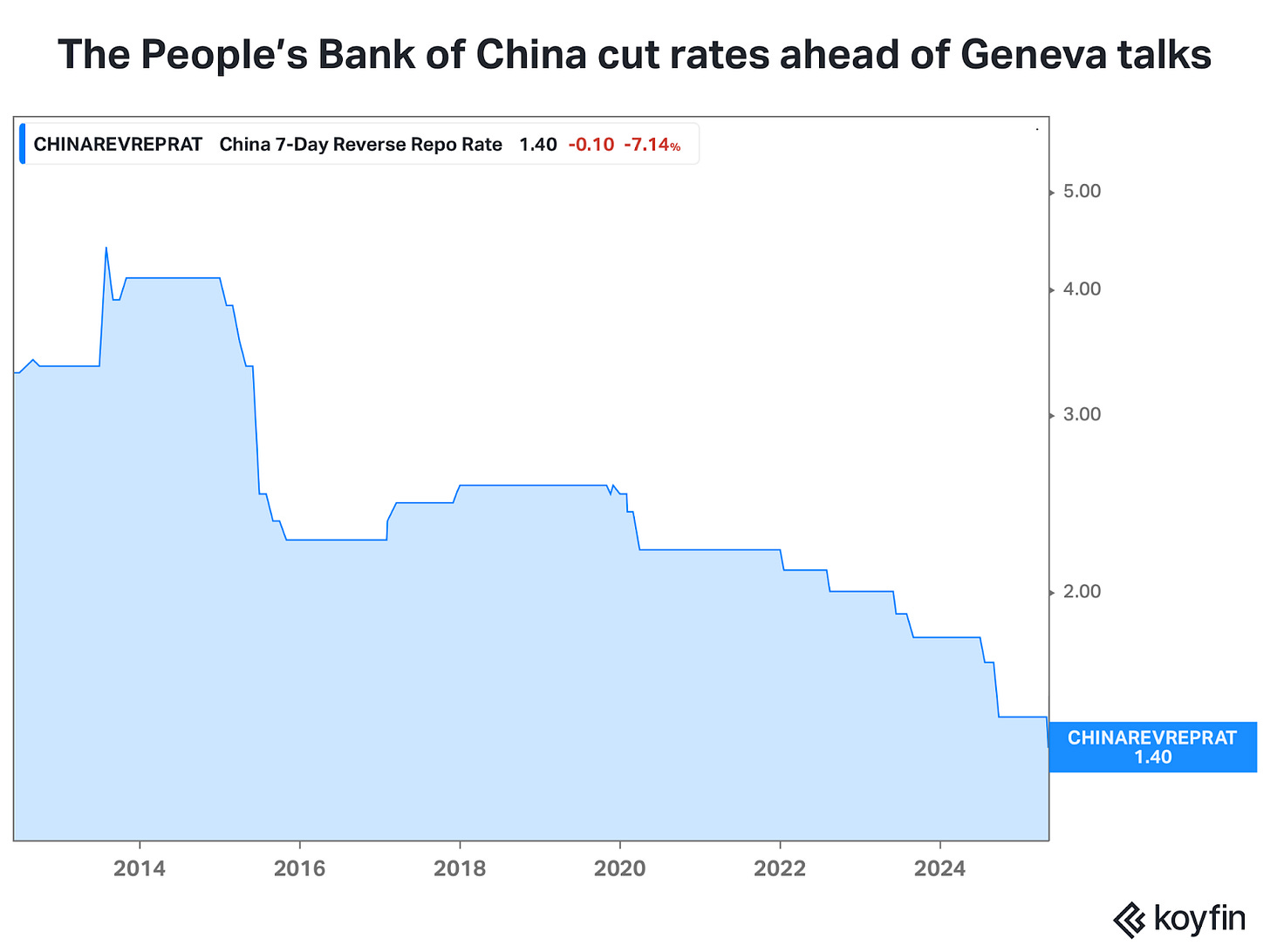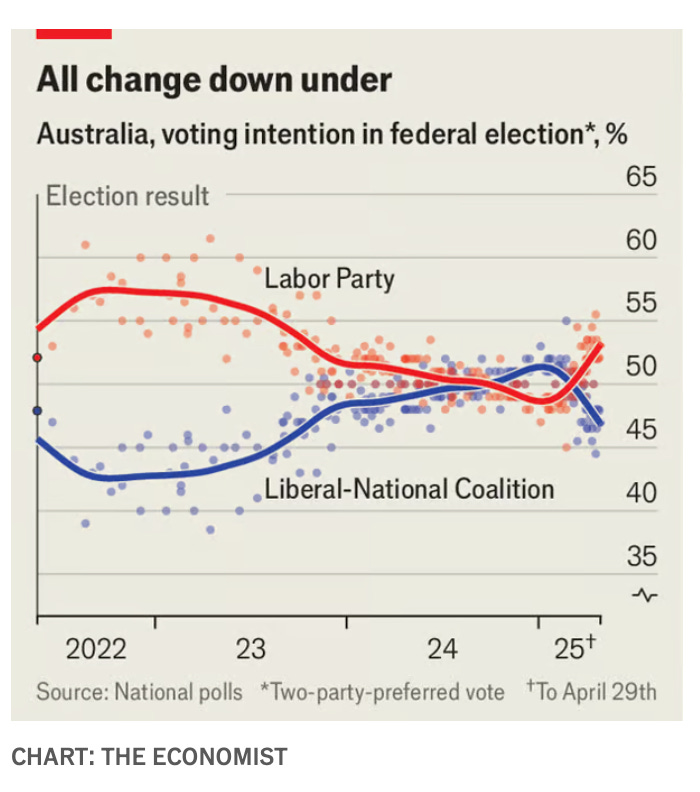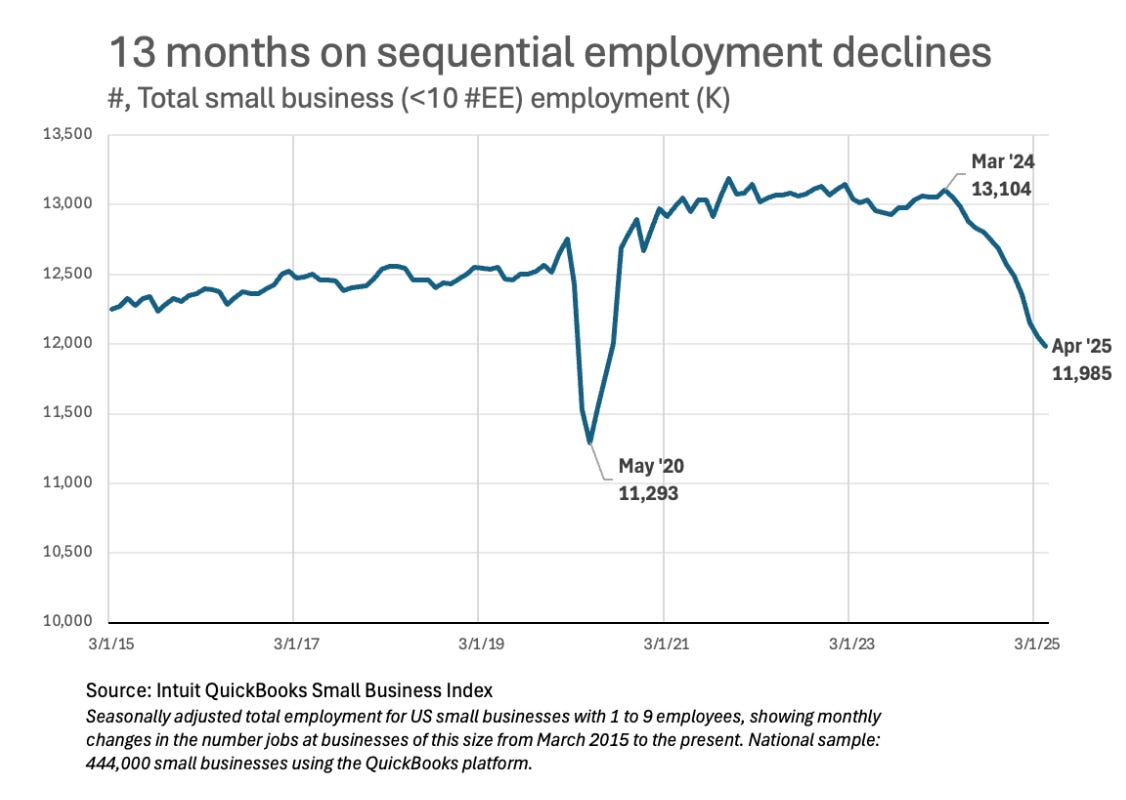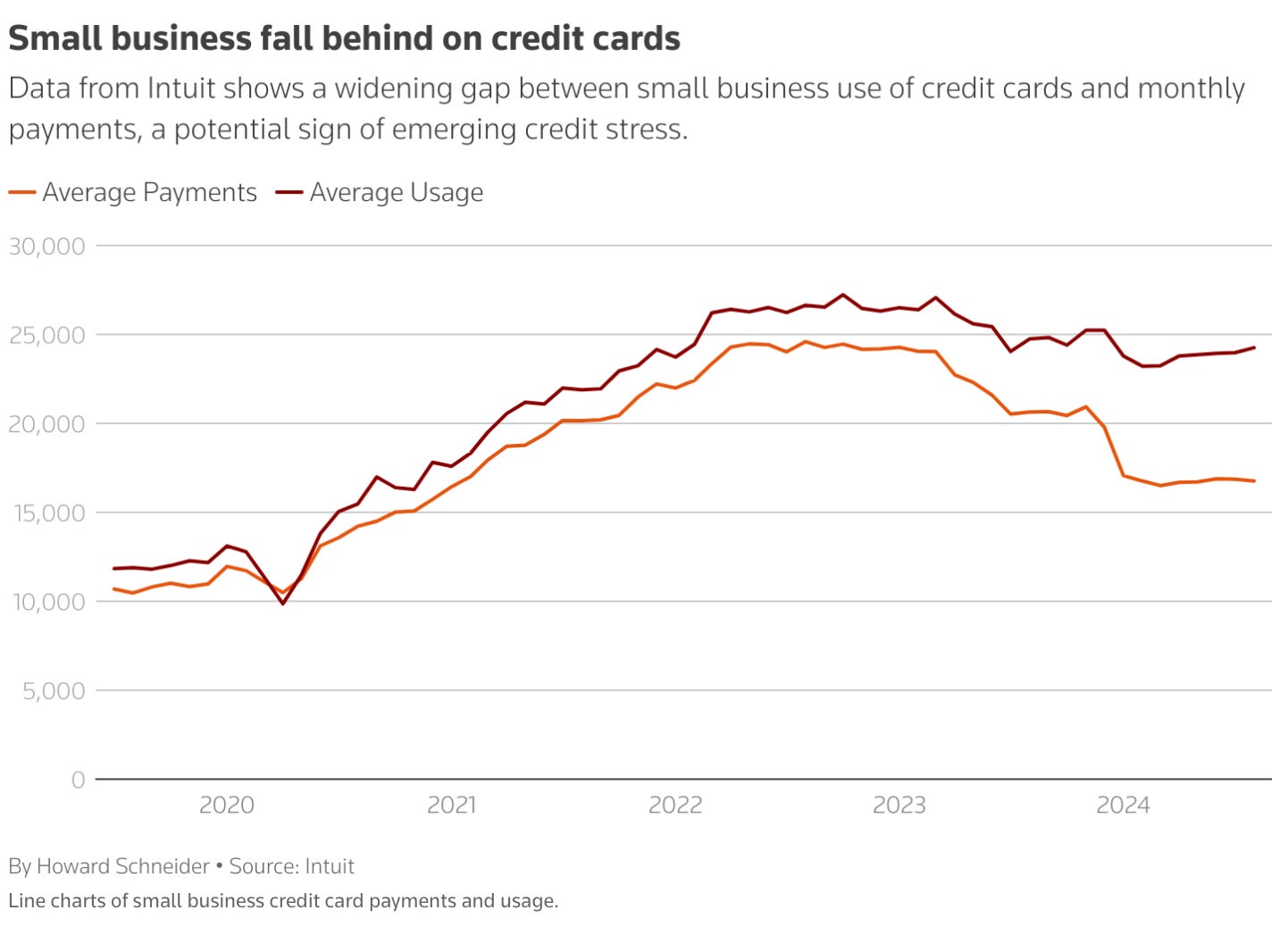Déjà vu? American-Chinese vis-à-vis (Update May 12, 2025)
Monday, May 12, 2025
Good morning,
As a programming note, I decided to dedicate more time to writing weekly updates that will hopefully be published on Monday’s. If you have suggestions and feedback, please email me!
Geneva trade talks: they are talking!
“Candid, in-depth, constructive” - Chinese Vice Premier He Lifeng
“Substantial progress” - U.S. Treasury Secretary Scott Bessent
After a weekend of official face-to-face talks, both American and Chinese representatives signal a non-adversarial tone to the discussions.
I think these talks kick off the first innings to a series of discussions, very similar to the talks that took place from 2018 to 2019.
Remember, in the 2018-2019 trade spat, in-person bilateral trade talks started in earnest around May 2018 in Beijing. The “Phase 1” trade deal wasn’t finalized until around December 2018, after almost seven months of negotiations.
While both sides’ language from this weekend’s talks sound optimistic, the global context has substantially shifted. It is also round two in this bruising boxing match, and one side has had much more time to prepare: China.
The 2020 “Phase 1” U.S.-China trade deal was mostly a marginal reset of 2018-2019 tariffs, with both sides agreeing to pause tit-for-tat tariffs and progressing to mutual semi-annual discussions in “Phase 2”.
Phase 2 of the trade deal never took place. The Biden administration lost hope of any more progress after the Chinese ultimately did not meet their target of purchasing $200 billion of additional U.S. goods–mostly farm goods and commodities.
The White House claims a trade deal has been struck at this May 10-11 set of talks. Yet, the Chinese’s state media has only promised a joint communiqué1 on May 12, alluding to an agreement on the mechanisms for restarting trade consultations based on “mutual respect”.
Meanwhile, over the same weekend, Chinese President Xi flew to visit Russian President Putin in an official state visit, presiding over the May 8 Victory in Europe (VE) day. Moreover, this week, South American leaders from Brazil, Colombia and Chile will visit Beijing to meet the Chinese leader to re-energize relations between the region and China.
Talks are better than no talks. Actions speak louder than words, so time will tell whether it is real talk, or just a bad rerun of the 2018 trade talks.
Commonwealth buddies: Australia and Canada
Last week, another Commonwealth country rejected right-wing politics. Similar to the recent Canadian victory of Canadian’s Mark Carney, Australians voted for the governing Labor party and gave the incumbent Anthony Albanese another term as prime minister.
The resurgence of Australia's Labor party in the polls had a similar trajectory as Carney's reversal of fortunes–voters in Australia and Canada rejected Trumpism on the global stage. Peter Dutton, the leader of Australia’s opposition party, similarly lost his own seat–exactly like Canada’s Conservative party leader Poilievre.
Mark Carney also wrapped up his short visit to the White House, with little more than:
Americans can have their Range Rovers again
Back in the British Isles, from a Jaguar Land Rover factory in England, British Prime Minister Starmer announced the U.S.-U.K. deal.
Remember, the U.K. is one of the few nations with whom the U.S. has a trade surplus.
But nonetheless, what is in the U.K. trade deal you ask?
Practically, there is nothing of significance.
Tariffs are most the same–with the sole exception of cars. Americans can have their Land Rovers and Range Rovers again after the export pause.
US small businesses are getting more vocal after the pain
In my last update, I touched on how small businesses will bear the brunt of the trade war: ~80% of U.S. employment is by small businesses.
Since the higher interest rate environment started in 2024, the health of small businesses has been declining.
For the last 13 months, total employment for businesses with less than 10 employees declined every single month.
Businesses have also started to fall behind in their credit card payments.
The contrast in tone between big and small business is stark.
With Blackstone and Goldman Sachs taking over entire floors at the Waldorf Astoria in Beverly Hills, one financier at the Milken conference last week told the Financial Times,
“This is the most self-censored Milken conference I have ever been to.”
Yet, the brave small business owners are speaking out.
From the Wall Street Journal:
“Nobody in power seems to care about small business,” said Scott Anderson, owner of 5 Star North, which works with Chinese manufacturers to make its products ranging from acrylic markers to tiki torches. “At this point the only option I see is selling out the rest of what we have and shutting our doors.”
From the Financial Times:
The owner of a California-based food manufacturer, who asked not to be named, said one Chinese supplier “offered to change the cogs on invoices to help me evade tariffs” soon after Trump rolled out the increased duties.
“My option is to lay off my team or join in the fraud,” the owner said.
From the New York Times:
Tim Fulton and Ramper Innovations, a manufacturer of airplane equipment based in Sitka, Alaska.
He had an order from the U.S. Air Force that he was confident would serve as a catalyst and bring in new customers from Asia and the Middle East while luring potential investors.
“I feel like things have ground to a halt,” said Mr. Fulton.
With no orders to fill, Mr. Fulton rented out his home in Alaska and temporarily moved to Brazil, where his wife is from, because the cost of living is lower. And instead of closing deals with investors to raise more money, he is consulting a bankruptcy lawyer.
Yes, Made in America. Let’s stay open for business first?
Treasury Secretary Bessent told a room full of investors at the Milken conference:
Hire your workers here. Build your factories here. Make your products here.
I agree. The U.S. must rebuild its capacity for domestic production and reinvest in its workforce. Build and innovate in America.
But as Dave Chappelle has said, “we want to wear Nike’s, I don’t want to make them.”
When the tariffs are putting an Alaskan airplane equipment manufacturer for the U.S. Air Force out of business, that is just plain bad execution.
See you next week.




